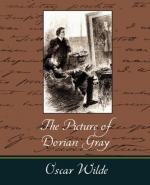He was an extremely clever young man, though he had no real appreciation of the visible arts, and whatever little sense of the beauty of poetry he possessed he had gained entirely from Dorian. His dominant intellectual passion was for science. At Cambridge he had spent a great deal of his time working in the laboratory, and had taken a good class in the Natural Science Tripos of his year. Indeed, he was still devoted to the study of chemistry, and had a laboratory of his own in which he used to shut himself up all day long, greatly to the annoyance of his mother, who had set her heart on his standing for Parliament and had a vague idea that a chemist was a person who made up prescriptions. He was an excellent musician, however, as well, and played both the violin and the piano better than most amateurs. In fact, it was music that had first brought him and Dorian Gray together—music and that indefinable attraction that Dorian seemed to be able to exercise whenever he wished— and, indeed, exercised often without being conscious of it. They had met at Lady Berkshire’s the night that Rubinstein played there, and after that used to be always seen together at the opera and wherever good music was going on. For eighteen months their intimacy lasted. Campbell was always either at Selby Royal or in Grosvenor Square. To him, as to many others, Dorian Gray was the type of everything that is wonderful and fascinating in life. Whether or not a quarrel had taken place between them no one ever knew. But suddenly people remarked that they scarcely spoke when they met and that Campbell seemed always to go away early from any party at which Dorian Gray was present. He had changed, too—was strangely melancholy at times, appeared almost to dislike hearing music, and would never himself play, giving as his excuse, when he was called upon, that he was so absorbed in science that he had no time left in which to practise. And this was certainly true. Every day he seemed to become more interested in biology, and his name appeared once or twice in some of the scientific reviews in connection with certain curious experiments.
This was the man Dorian Gray was waiting for. Every second he kept glancing at the clock. As the minutes went by he became horribly agitated. At last he got up and began to pace up and down the room, looking like a beautiful caged thing. He took long stealthy strides. His hands were curiously cold.
The suspense became unbearable. Time seemed to him to be crawling with feet of lead, while he by monstrous winds was being swept towards the jagged edge of some black cleft of precipice. He knew what was waiting for him there; saw it, indeed, and, shuddering, crushed with dank hands his burning lids as though he would have robbed the very brain of sight and driven the eyeballs back into their cave. It was useless. The brain had its own food on which it battened, and the imagination, made grotesque




